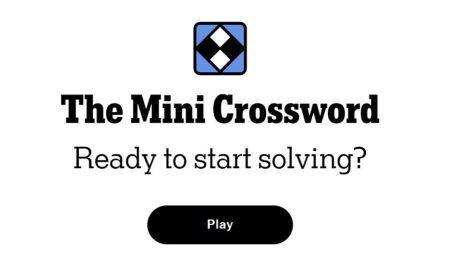When productivity and purpose dominate our thoughts, many of us wrestle with guilt when we find ourselves doing something that feels “unproductive.”
“Why do I feel so happy when I spend an hour organizing my desk or scrolling through videos of dogs wearing hats?” we might ask. “Shouldn’t I be doing something more meaningful?” The answer is simple—and often the same: there is a purpose in purposelessness.
Take, for example, events like the No Trousers Tube Ride in London. Each year, hundreds of participants strip down to their underwear and ride the Underground, not for charity, spreading awareness or any particular cause, but simply for the fun of it.
While this may seem utterly purposeless or even strange, the event is more than just a lighthearted prank. It’s an invitation to embrace the absurdity of life and let go of the constant pressure to be serious or productive. For participants, it’s an opportunity to step outside of routine, connect with others in a playful way and experience the joy of living in the present moment.
It’s precisely when we allow ourselves to step away from the pressure of constant productivity that we begin to tap into the deep, restorative power of life’s simplest moments.
Here are four reasons why seemingly meaningless activities are deeply beneficial to our well-being.
1. They Relieve Decision Fatigue
In the often fast-paced world we live in, our brains are constantly managing responsibilities, deadlines and an endless stream of decisions. This constant mental strain can lead to what’s known as decision fatigue.
According to The Decision Lab, decision fatigue refers to the decline in our ability to make effective decisions as we are faced with an increasing number of choices, leading to mental exhaustion.
Think about tasks like organizing your desk, folding laundry or rearranging a bookshelf. While they might seem insignificant, these activities offer something invaluable: simplicity. Simple, repetitive tasks provide a much-needed reprieve from the constant need to make decisions. They don’t require complex choices, allowing us to step away from the overwhelming cognitive load of the day. These activities give our brains a chance to reset, creating space for mental recovery.
By incorporating these “meaningless” tasks into our routine, we can return to more demanding work with a clearer mind, better focus and renewed energy.
2. They Help You Reconnect With The Present Moment
Our lives are often consumed by thoughts of the past or future. We may ruminate over past mistakes or become anxious about future challenges. In both cases, our mental energy is scattered and we lose touch with the present moment. This is where seemingly trivial activities can make a big difference.
Simple actions—like basking in the warmth of the sun, listening to music or taking a walk—can anchor us in the here and now. Engaging fully in the present, even with simple, everyday tasks, offers profound emotional benefits.
A 2015 study published in PNAS found that a 90-minute walk in nature can significantly reduce overthinking and lower activity in brain regions associated with self-focused withdrawal. This highlights how such activities create space for our thoughts to flow naturally, without the pressure to achieve specific outcomes. They allow for reflection, creativity and relaxation—offering a much-needed reprieve from the demands of modern life.
So, the next time you’re feeling overwhelmed or frazzled, try engaging in a simple activity to ground yourself. Pay attention to the textures, colors or patterns around you, and let your mind wander gently. Notice how it helps you reconnect with the present.
3. They Rekindle Playfulness And Creativity
Do you remember spending hours as a child building sandcastles or pretending to be a pirate? We were encouraged to play, imagine and get messy, without worrying about doing things the “right” way.
Over time, however, that playful spirit often fades. As adults, we tend to feel the pressure to always have a purpose behind everything we do. But here’s the truth: doing something just for fun or silliness is one of the best ways to reignite creativity.
Activities like sketching, dancing around the living room or building something out of Legos (yes, even as an adult!) can unlock a creative side that you might not have accessed in years. It might sound counterintuitive, but some of our best ideas often emerge when we’re not focused on producing results.
In fact, a 2014 study of 1,536 participants found that those who identified as playful also viewed themselves as more creative, with a strong positive correlation between self-reported playfulness, creativity and innovation.
Play and creativity aren’t always about creating something; they’re about exploring and expanding your mind in new ways. You don’t need to create a masterpiece—sometimes, just allowing yourself to be spontaneous is enough to spark new ideas and bring a little lightness to your day.
So, try to incorporate more play into your week. Do something fun and silly—like finger painting or completing a puzzle. Let go of the need for creativity to have a specific outcome. Sometimes, just playing is enough.
4. They Offer An Emotional Release
During stressful or overwhelming times, processing feelings can feel like an insurmountable task. Often, we struggle to articulate our emotions, which can leave us feeling even more drained.
However, even in the absence of overt emotional expression, simple activities can help facilitate emotional release. Tasks like cooking, gardening or engaging in repetitive actions such as knitting can offer a way to channel emotions productively and provide space for quiet reflection.
For instance, a 2015 study published in Textile highlights that knitting is a versatile tool for enhancing well-being. It reduces stress, offers therapeutic benefits and fosters creativity and self-expression. Similarly, other simple tasks can have the same effect, helping us process emotions without the pressure of problem-solving or intense conversation.
These activities create space for emotions to move through us, offering emotional relief and allowing us to regain balance. Engaging in physical tasks can also release pent-up frustration, sadness or joy in a non-verbal way, helping us connect more directly with our feelings. So, the next time you feel emotionally tense, grab something physical to do with your hands—whether it’s ripping up old magazines for a scrapbook or kneading dough.
In a world that glorifies productivity, embracing “meaningless” time is a radical act of self-care. Whether playful, meditative or purely absurd, these moments remind us that life isn’t about achieving—it’s about experiencing the full spectrum of what it means to be human.
Are you forgetting to slow down and enjoy the present moment? Take the science-backed Mindful Attention Awareness Scale to find out.
Read the full article here









